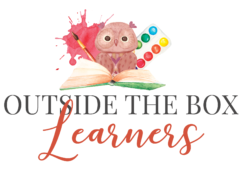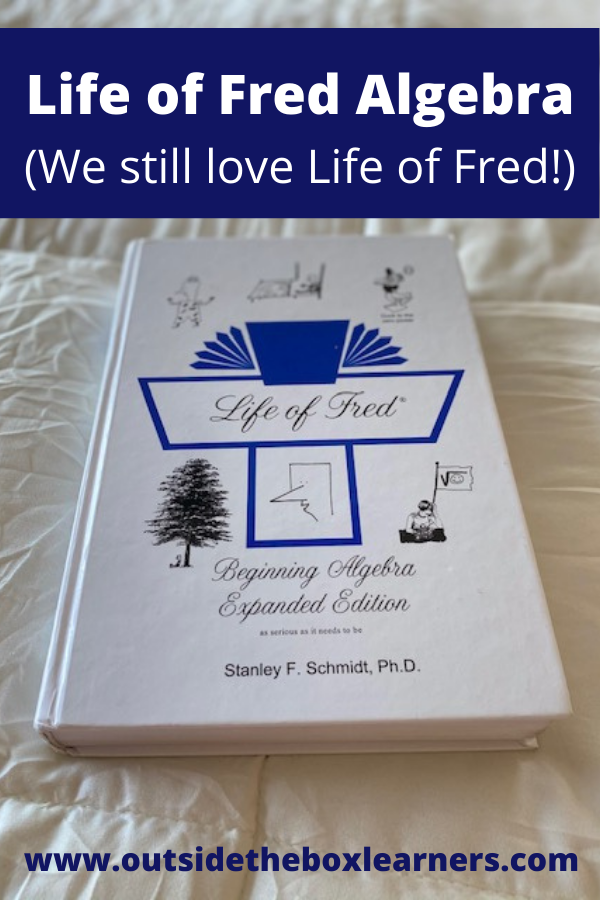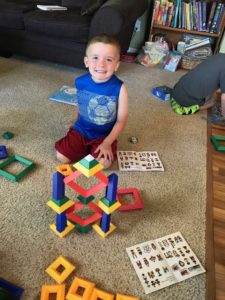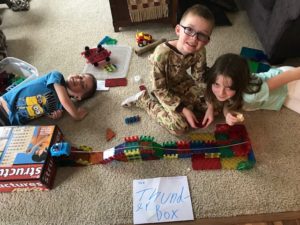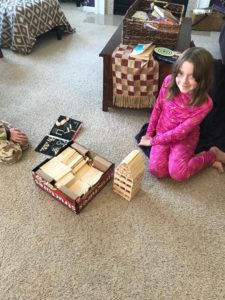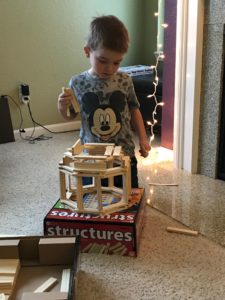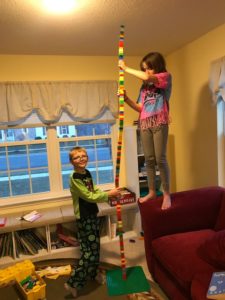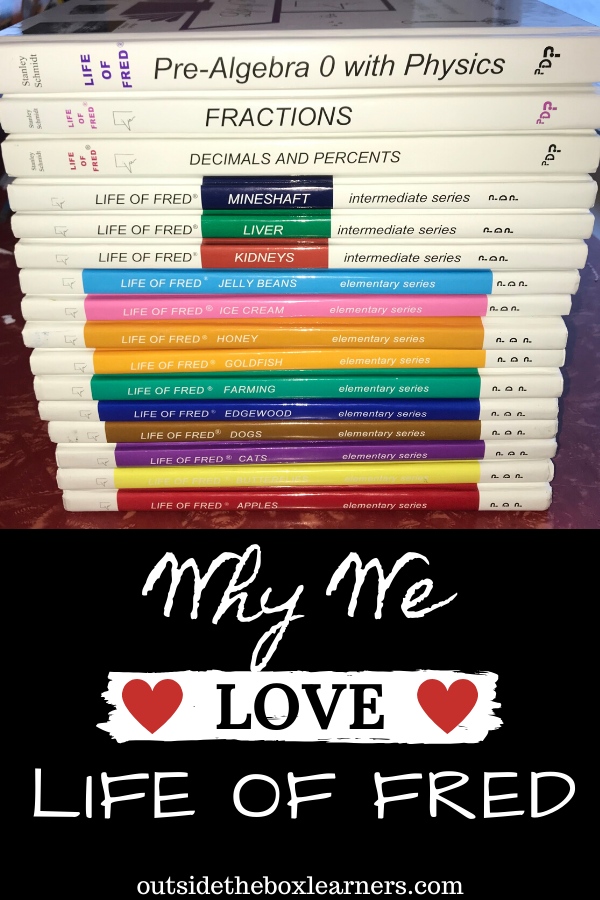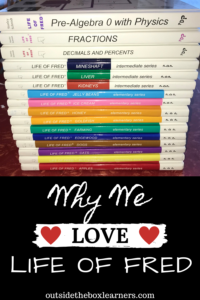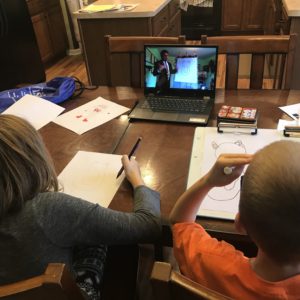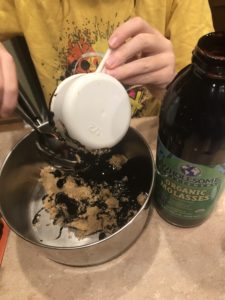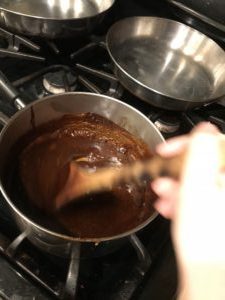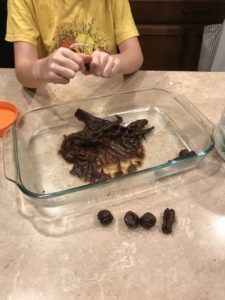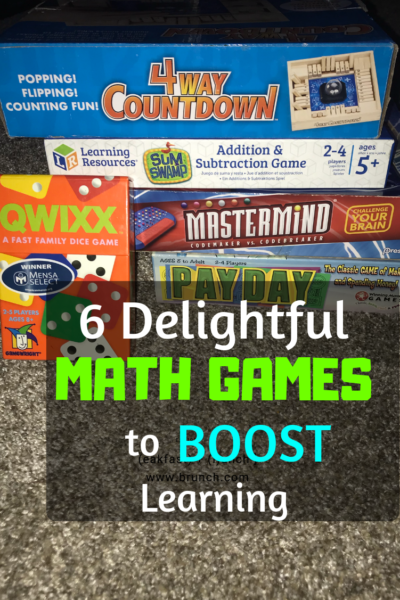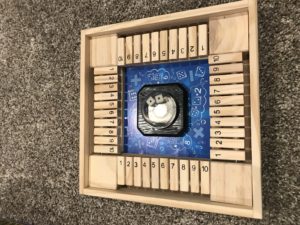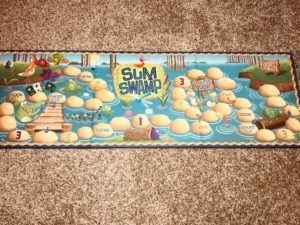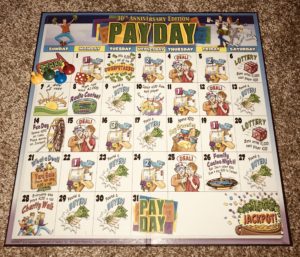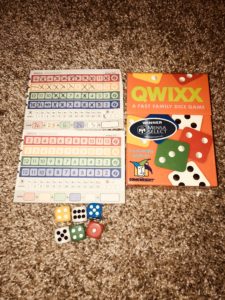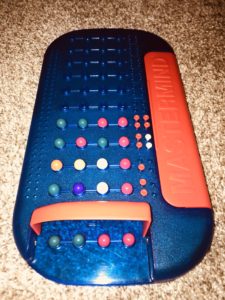Our daughter just started Life of Fred Algebra,
and it’s probably her favorite subject. This is a big deal since the math tears flowed freely when she was young. We are thankful that she continues to love Life of Fred Math. Algebra has been integrated into Life of Fred since the elementary books (introduced in bite-sized amounts and then building from that), which has made the transition to Algebra pretty seamless.
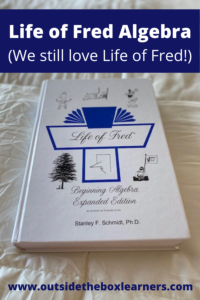
This blog post contains affiliate links and any purchases made through such links will result in a small commission for me (at no extra cost to you).
Before we began using Life of Fred,
I had the stance that we’d stick with “Fred” as long as it continued to work for us. Since my last post on Life of Fred, she’s completed the Pre-Algebra series, which includes three books: Pre-Algebra Physics, Pre-Algebra Biology, and Pre-Algebra Economics.
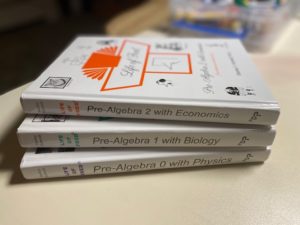 She thoroughly enjoyed the combining of pre-algebra with other subjects (well maybe not physics as much, though it did stretch her brain a bit!)
She thoroughly enjoyed the combining of pre-algebra with other subjects (well maybe not physics as much, though it did stretch her brain a bit!)
I thought pre-algebra might be a time when we weaned off of Fred, but surprisingly she enjoys it even more now. She hopes to go all the way to Calculus. You go, girl!
However, I don’t suspect Life of Fred will be the math curriculum of choice for all three of our kids.
Our 10-year-old son prefers a more structured math curriculum, with repetitive problems laid out in a sequential manner. That is not how Life of Fred is designed. While he still enjoys reading the Life of Fred books for fun, he will likely use something else as he advances in math. This year he is using MasterBooks math which is working out well. Our youngest is only 6 so the verdict is still out on him!
My daughter grasps math concepts fairly quickly which is why I think Life of Fred still works well for her. The quirkiness factor of it also continues to remain an attractive and novel quality.
We are even trying out the Life of Fred Language Arts
books this year which have ALSO been a hit!
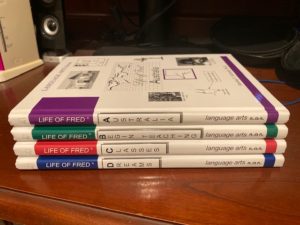
Fred has pretty much been a BIG WIN for us.
I highly suggest checking any of their books out if you’re needing something outside the box for your kiddo. If your child likes the concept of Life of Fred, but needs extra practice, they also have extra books with practice problems. 🙂
You can also find the books here.
